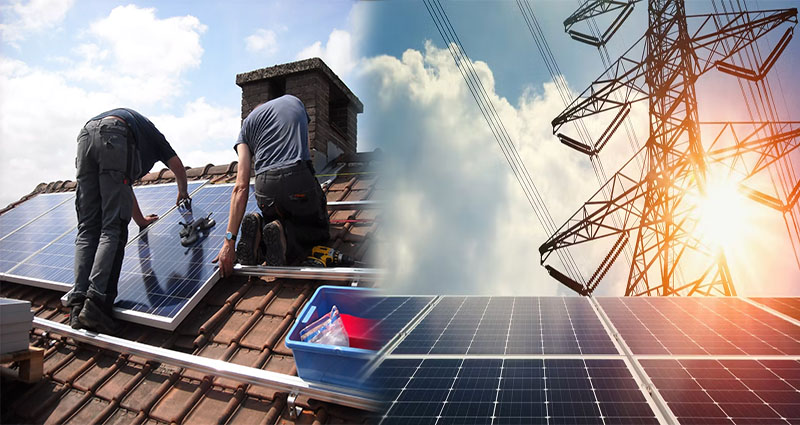Off-grid solar power systems offer a sustainable and reliable solution for meeting energy needs in remote areas or in situations where grid electricity is not available. These systems utilize solar panels to harness the power of the sun and convert it into electricity, which can be stored in batteries for later use. With advancements in technology and decreasing solar panel costs, off-grid solar power systems are becoming increasingly popular. Let’s explore the advantages of these systems and their potential to transform the energy landscape.
1. Energy Independence
Off-grid solar power systems provide a sense of energy independence by allowing users to generate their own electricity. With these systems, individuals can gain control over their energy consumption and reduce their reliance on fossil fuels or unstable grid power. Whether it’s a rural community, remote cabin, or a disaster-stricken area, off-grid solar power systems offer a reliable source of clean and sustainable energy.
2. Environmental Sustainability
One of the significant advantages of off-grid solar power systems is their environmental impact. By relying on solar energy, these systems produce zero greenhouse gas emissions, thereby contributing to global efforts in combating climate change. Off-grid solar power systems offer a sustainable alternative to fossil fuel-powered generators, which are not only polluting but also depleting finite resources. Switching to solar power helps reduce carbon footprint and preserves the environment for future generations.
3. Cost Savings
Although there is an initial investment involved in setting up an off-grid solar power system, it can lead to significant cost savings in the long run. Once installed, the system generates electricity for free, eliminating or reducing the need to pay utility bills. Additionally, maintenance costs for solar panels and batteries are relatively low compared to conventional generators or diesel-powered systems. Over time, the savings from energy bills can offset the initial investment and provide a return on investment.
4. Reliability and Durability
Off-grid solar power systems are known for their reliability and durability. Solar panels are designed to withstand harsh weather conditions and can continue to produce electricity even in cloudy or overcast days. Additionally, advancements in battery technology ensure efficient energy storage and discharge, providing a continuous and reliable power supply. With proper maintenance and care, off-grid solar power systems can operate efficiently for decades, offering a sustainable and long-term energy solution.
5. Versatility and Scalability
Off-grid solar power systems are versatile and can be tailored to meet specific energy demands. These systems can be scaled up or down depending on the energy needs of the user, making them suitable for a wide range of applications. From powering a single home or a small village to supplying electricity for agricultural operations or water pumping stations, off-grid solar power systems can be customized to fit various requirements.
6. Flexibility and Portability
Off-grid solar power systems are highly flexible and portable, making them ideal for remote locations or temporary setups. With advancements in technology, there are now portable solar panels and battery systems available that can be easily transported and deployed as needed. This flexibility allows for the quick and efficient setup of power systems in emergency situations, outdoor activities, or construction sites.
Off-grid solar power systems offer numerous advantages, ranging from energy independence and environmental sustainability to cost savings and reliability. As the demand for clean and sustainable energy continues to rise, off-grid solar power systems are becoming a viable alternative to traditional grid electricity. By harnessing the power of the sun, these systems provide a reliable and efficient source of electricity, empowering individuals and communities to embrace a greener and more sustainable future.












